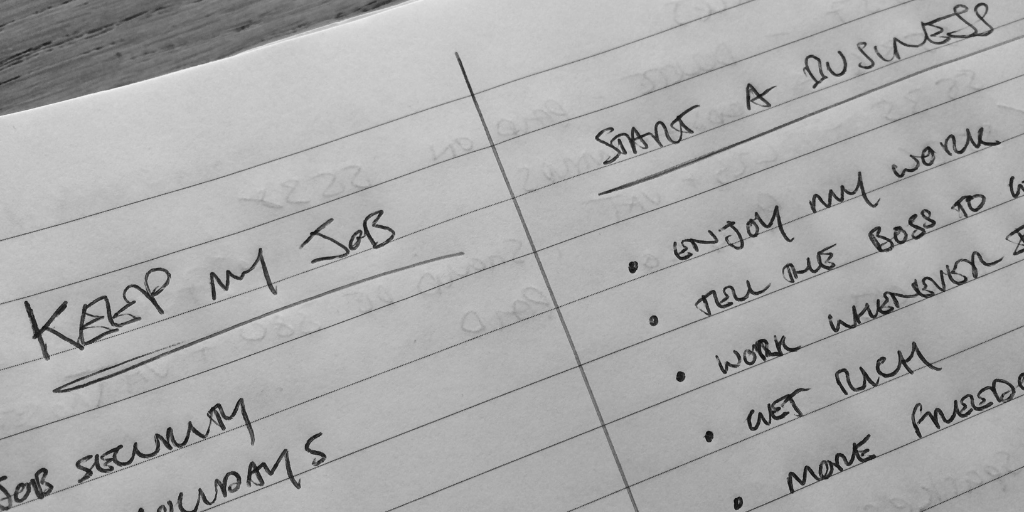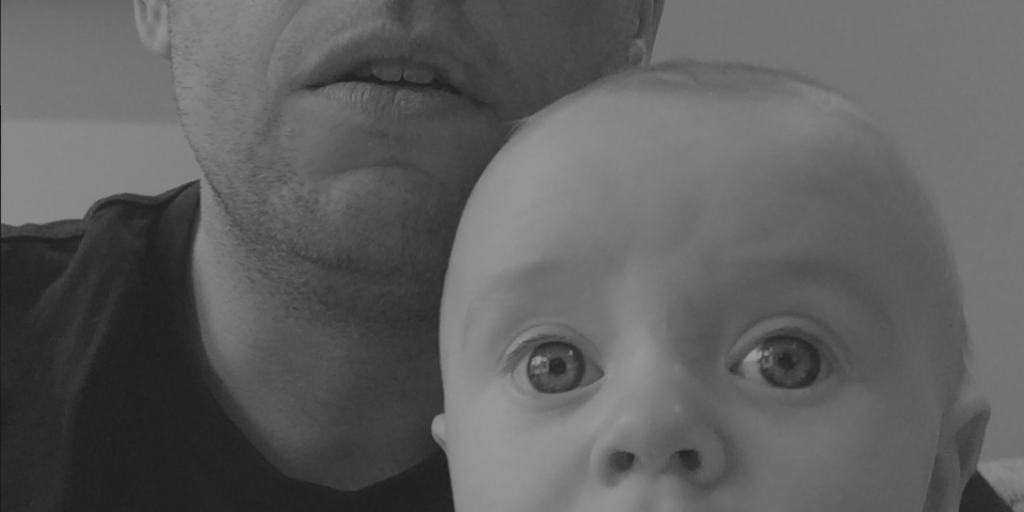In all of the stories ever told about winners and losers, failures and successes, there is just one thing that separates the two: the failure gave up, the winner didn’t.
It’s that simple.
In an interview I saw yesterday with Al Pacino, he proclaimed:
“Determination can beat talent!”
…and it made me think about how we classify some things as being optional and others as guaranteed.
How long do you give a child to learn to walk? At what point do you decide to give up on them and accept they will have to crawl around the rest of their life?
Learning to walk, learning to have a conversation, learning to write… these things we conquer as children are immeasurably more difficult than the things we routinely quit as adults: Getting a 6 pack, becoming a millionaire, publishing a book, building a successful business…
Why doesn’t everyone with any goal succeed?
Why don’t we just get it done, then move onto the next? Like kids do.
I think it’s all down to the staircase…
My little boy Jake is 14 months old and learning to walk (we’ve not given up on him yet), but he’s been an avid stair climber for months. He loves the stairs and any time he gets himself to the bottom, I stand behind him and follow him up to catch him if he falls. His Sherpa.
I will never forget the historic moment he first made it to the top unaided.
The first few stairs, no problem. He paused only slightly about a quarter of the way up to glance over his shoulder at me. Already he was as far as he’d ever been before.
The next few stairs, mechanically reaching up one arm and then pulling up one leg at a time, he was on a mission and now he was past half way.
Then, for no apparent reason, he paused, uncertain, looking up at the path ahead and peering back down where he’d come from. I could see he didn’t have many stairs to go, but he was close to reaching for my help, which meant the end of the expedition.
I lowered my head to his level, “Keep going Jakey” I told him close to his ear, with as much proud dad enthusiasm as I had ever had.
But before I stood back up, I glanced upwards and downwards as he had and immediately I realised something: to him the staircase was never ending.
Looking up it was just more of the same as he’d already climbed, more hard work with no end in sight. He was so close to the stairs he couldn’t see the top!
And looking down, all he could see was how high he’d climbed and how far he had to fall. His confidence was disappearing and fear was taking over.
But from my view, standing back up, l could see was how far he’d come and how close he was to the top. I had to get him to keep going just a little longer.
“You’re nearly there, keep going Jakey!” I banged on the stairs “go go go!”
I mimicked him crawling up the stairs with a beaming smile at him.
He looked at me blankly, then suddenly smiled at me and, with a crazed look on his face, grabbed the next step, pushing himself upwards with his chubby little legs and just a few seconds later he was sat triumphantly at the top of our staircase, looking down at how far he’d come from a whole new world he could now get to.
I thought what an awesome lesson he’d just learned, stick at it and you get there. I hope that spirit never leaves him and I reinforced the satisfaction of getting to the top with an over the top celebration of cheering and whoop whoops! so that the emotions might help to embed the lesson into his nature.
Who knows if it will.
I’ve thought a lot about the staircase metaphor, the relentless grind of anything we set out to achieve, the lack of any visible progress along the way or any hint of the destination in sight.
And without anyone around you there will be little to no encouragement along the way (some arseholes will even revel in seeing any glimpse of you failing), no rewards or pats on the back for sticking at it, nothing but the same pain and discomfort you had yesterday without any promise of it ending soon, the fear of it all going wrong and a fading desire to even reach the destination any more.
Talking yourself out of achieving your own goal.
Ask anyone who’s done Weight Watchers and they will tell you that it was the group that helped them reach their goal; the regular encouragement they received, the success stories from people just like them and not wanting to let the team down.
But out there on our own, no wonder we give up. The staircase is unforgiving.
But it’s just a staircase. Ask anyone who’s climbed it; the guy with the 6 pack, the millionaire, the best selling author… they see a different view. They know that all you need to do is keep going.
It’s that simple.
Now, keeping going might not mean keep banging your head against a wall, it might mean stopping for a breath, taking a fresh look at what you’re doing.
If you don’t want to succeed then listen to the opinions and advice of people who’ve never accomplished what you’re going after.
If you want to succeed then only listen to the people and stories of those who’ve climbed the stairs already.
Regroup. Adapt. Improvise.
If we keep going we will get there.
It’s that simple.
John
p.s. If you want more from your life and work than average, my blogs are written just for you. Enter your email address and hit subscribe to get every one of them. Or if you know someone who might enjoy reading this article then click below to share.








